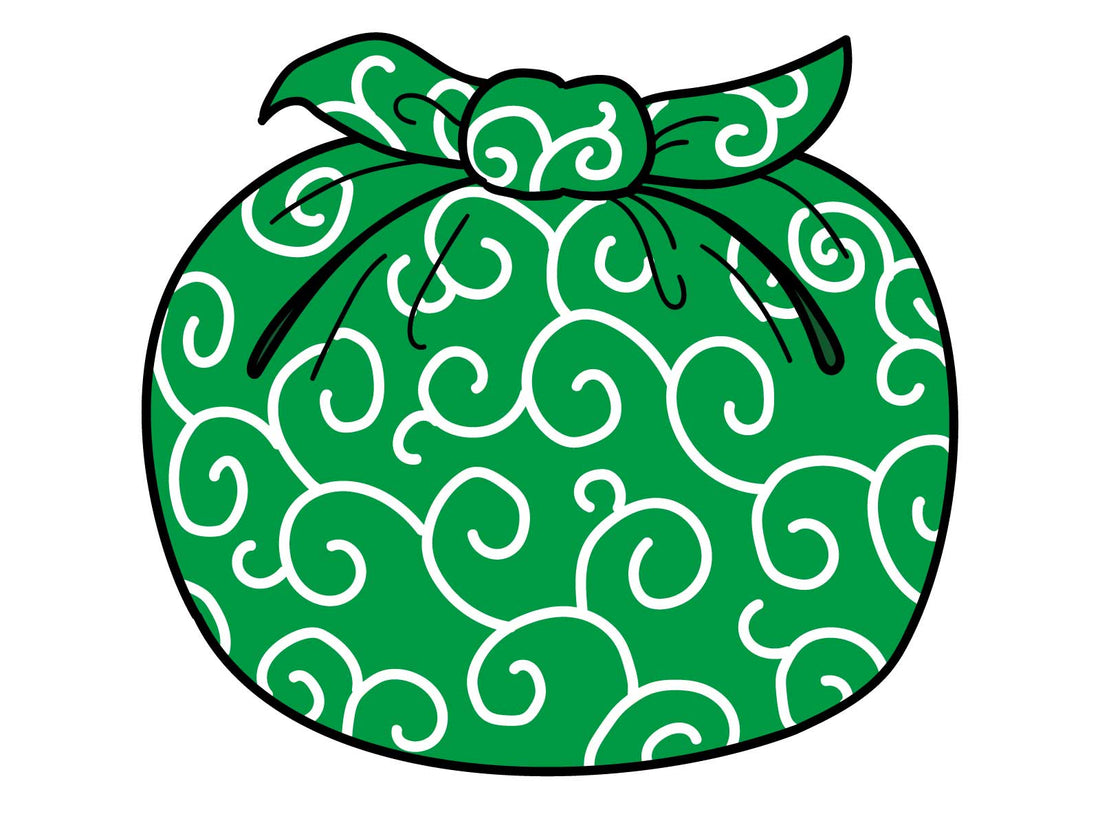
The Karakusa Furoshiki: From a Staple in Japanese Homes to a Global Tradition
Memories of Showa Era and the Karakusa Furoshiki
For those of us born in the Showa era, the karakusa-patterned furoshiki evokes a deep sense of nostalgia. In my own home, opening the closet would reveal futons wrapped in a large karakusa furoshiki. This furoshiki was more than just fabric; it seemed to hold the cherished memories of our family within its folds.
From Meiji to Showa: The Furoshiki's Rise to Popularity
During the Meiji era (1868–1912), the furoshiki became widely used as a storage tool in many households. By the 1950s to 1970s, the karakusa-patterned furoshiki had become a must-have item, selling over 1.5 million units annually. It was so common that it was said, "Every household has at least one." The karakusa pattern, symbolizing prosperity and longevity, became an integral part of daily life, often used to wrap a bride’s dowry and stored at the bottom of a chest of drawers for good luck.
Why Did It Become a Thief's Favorite?
A curious question arises: how did the karakusa furoshiki become a favorite tool of thieves? The answer lies in its traditional storage placement. As mentioned, it was customary to store the furoshiki at the bottom of the chest of drawers, where everyday items were kept. Unfortunately, this convenient storage method turned out to be a time-saving technique for thieves. They would start by opening the bottom drawer, taking out the furoshiki, and then use it to wrap up the valuable kimonos, jewelry, and other treasures stored in the upper drawers before making their escape. This story not only supports the idea that "every household had one" but also explains why thieves favored the furoshiki.
Modern Japan and the Karakusa Furoshiki
As time has passed, traditional Japanese homes with tatami rooms have become less common, and with them, the presence of the karakusa furoshiki has diminished. However, rather than being forgotten, the karakusa furoshiki is experiencing a resurgence, being reinterpreted for modern times.
Musubism's Mission: Bringing the Furoshiki to Homes Worldwide
At Musubism, our mission is to make the furoshiki "a piece for every home worldwide." We aim to preserve traditional Japanese culture while reimagining the furoshiki as a contemporary art form for eco-chic wrapping. Our furoshiki is not just a functional item; it is a stylish accessory incorporating innovative designs from young international designers. It also serves as an environmentally friendly option, aligning with sustainable lifestyle choices.
Owning a Musubism furoshiki allows you to express your unique style while making a statement in support of Earth-friendly practices. Furthermore, we are committed to supporting Japanese artisans, preserving traditional techniques, and revitalizing workshops that are gradually disappearing.
The Karakusa Furoshiki: Bridging Past and Future
Musubism aspires to be a bridge between past memories and future experiences. Through the furoshiki, we can reaffirm the bonds between family and friends and extend those connections globally. We hope that our furoshiki becomes a cherished item in your home and that it will spread to households around the world.
#FuroshikiRevival
#KarakusaPattern
#JapaneseCraftsmanship
#SustainableLiving
#Musubism
#EcoFriendlyWrapping
#JapaneseTradition
